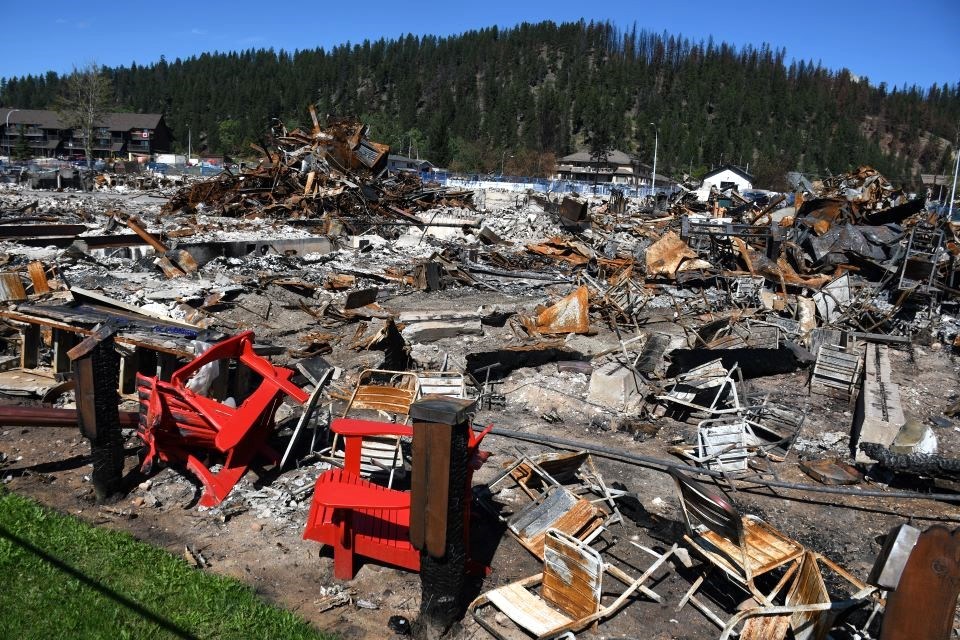The NDP is pushing the UCP Alberta government to provide immediate tax relief for the Municipality of Jasper following the wildfire five months ago.
Kyle Kasawski, Alberta NDP shadow minister for municipal affairs, said in an interview that Jasper was being treated differently from other towns that have suffered from wildfire, such as Slave Lake and Fort McMurray.
The province had recognized in those situations that it was unfair to charge property taxes at the same rate as before the buildings were destroyed, but Kasawski noted this was not the case for Jasper.
“They are really holding the town hostage for an agreement they’re asking from the federal government, which is they need Parks Canada to lease the land for interim housing they want to build in the town of Jasper,” he said.
Municipal Affairs Minister Ric McIver commented in the Legislature on Nov. 28 that the government wanted to secure land leases for interim housing before committing any funding to financial stabilization.
“Jasper knows there’s tax relief coming, and we’re doing the responsible thing of getting leases in place so we can leave $120 million worth of funding provided by the Alberta government in support of Jasper,” McIver said.
Kasawski accused the UCP government of prioritizing wanting to sell interim housing at a profit down the road over the well-being of Jasper.
Following a wildfire that destroyed nearly a third of the town and resulted in a loss of $300 million in assessed value, the Municipality of Jasper is anticipating $9.3 million in lost revenue between 2025 and 2027.
The municipality has since been asking the provincial government for financial stabilization funding. Any tax relief for residents would be dependent on this.
Kasawski said the province was putting the municipality’s council and administration in a tough position, where they either would have to drastically cut services or raise property taxes.
He added the issue of securing land leases from Parks Canada needed to be handled separately from providing tax relief to the municipality since these were two separate entities.
“Trying to combine these two issues and hold the town responsible for getting these things is really bad government by the UCP,” he said.
While Jasper is currently approved for $73.5 million under its application to the provincial Disaster Recovery Program (DRP), the municipality is required to cover 10 per cent of the cost.
For 2024-25, the municipal contribution is pegged at $4.3 million. This would be equal to a 36.5 per cent tax increase in 2025 on top of the 4.9 per cent increase currently being proposed.
Kasawski referred to this as a “double whammy” for Jasper, noting Fort McMurray and Slave Lake had not been required to make a 10 per cent contribution. This was under a previous program, but the new DRP program now requires a municipal contribution.
Jasper council has refrained from commenting on recent remarks from ministers but has emphasized the need for tax relief.
Mayor Richard Ireland asked administration on Tuesday (Dec. 10) to explain the underlying assumptions with the upcoming municipal budget.
CAO Bill Given said the DPR contribution had been listed as an unfunded capital item because there was uncertainty about what the final amount would be. It is currently listed as a $10 million item in 2028.
“If we wanted to start to save money to pay for that future bill, we would need to do a significant increase in property taxes in the 2025 year,” Given said. “Obviously, that isn’t really a tenable solution, given the financial situation in the community, and so administration hasn’t chosen to build in collection of revenue to build a reserve to pay that future expense.”
Given noted the current budget did not reflect the financial stabilization request but that administration “had a high degree of confidence” that the province would cover the bill for destroyed properties, based on remarks in the Legislature.
“I think the underlying expectation is that some of those revenues will come from outside sources,” he said. “If they don’t, that would be a discussion to have at mill rate setting time.
Council is expected to approve the budget next week.
Heather Jenkins, press secretary for Alberta’s municipal affairs minister, said in an email that the Alberta government was working with the Municipality of Jasper and Parks Canada to deliver financial stabilization funding soon.
“Alberta’s government recognizes the wildfire in Jasper has had a devastating impact on the community, and we are committed to supporting the Municipality of Jasper in its recovery,” Jenkins said.
Regarding the DPR funding, Jenkins said the province was subject to a cost-sharing structure where it recovers funding through the federal government’s Disaster Financial Assistance Arrangement program.
Because the wildfire began in a national park, which is under federal jurisdiction, the province has since asked the federal government to waive its cost share. Jenkins noted the province would in turn waive the cost share requirement for Jasper.
“No decisions have been made at this time, but we are actively working to ensure the best possible outcome for Jasper,” she said.
As for interim housing, the province is working with Parks Canada to finalize land agreements before it rewards the manufacturing contracts.
“We are on track for delivery in January/February and are working hard to reach our commitment of 250 units,” Jenkins said.
Editor's note: The story was updated to add context about the DRP program.




